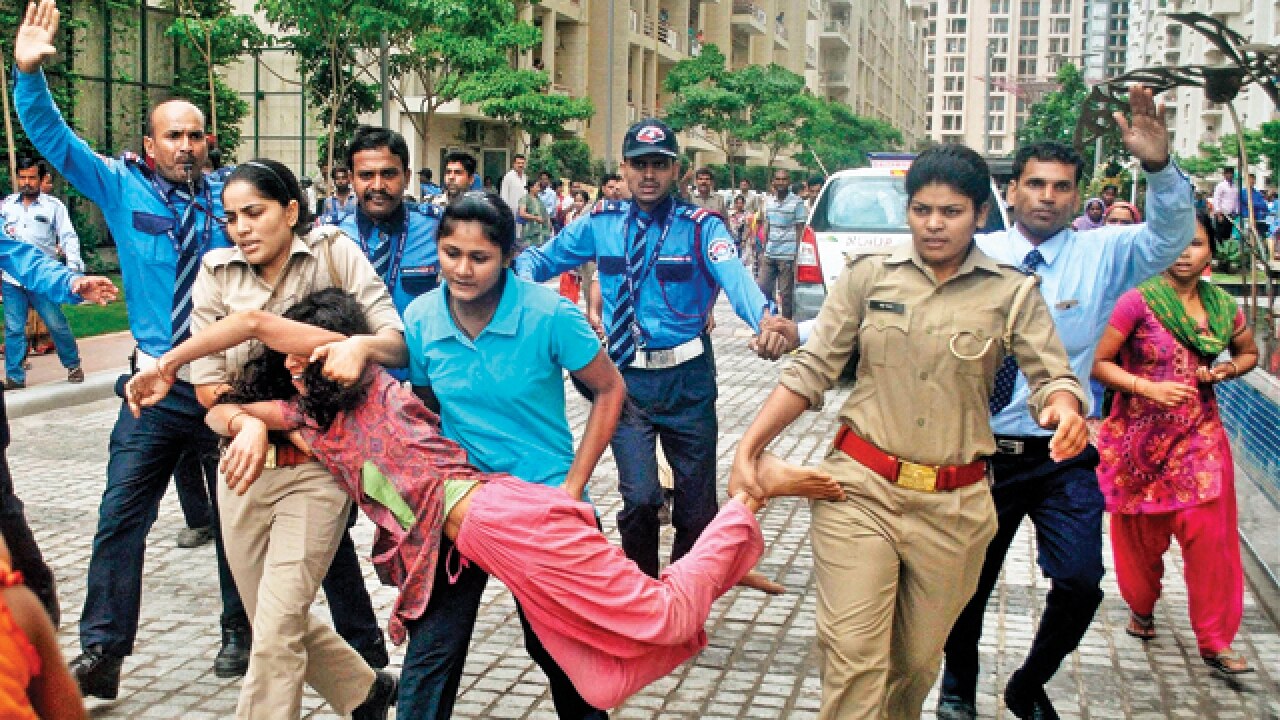
August, 2009: A mob of 700 angry villagers torched a posh resort called Vedic Village in Rajarhat New Town, outside Kolkata. July, 2017: This week angry villagers got into a prolonged battle with security guards and residents of a gated apartment complex called Mahagun Moderne, in Noida, on the outskirts of the Capital. Though the details are murky, broadly the version that has been reported is that it was triggered by a domestic maid — accused of theft — being held back, and not allowed to go home.
These incidents may seem disparate, odd events of violence that often get reported in newspapers. But the common thread that runs through the incidents is that both venues were islands of luxury situated amid deprivation.
In the case of Vedic Village, sociologists pointed to the exclusion the spa symbolised in the middle of an area that was barely getting urbanised. Local people had been watching flashy cars drive up to the spa-resort’s gate.
Only those among them who were employed in the resort could get entry while the rest only heard stories of what went on inside. Though the trigger was ostensibly a football match, it was the outward manifestation of the resentment that kept simmering among the local poor.
In the Noida case, Mahagun Moderne is a gated community, heavily guarded like all such enclaves are. It lies in an essentially rural landscape of villages dotted by other such apartment complexes. An army of domestic workers, a mix of migrants and local people from these villages, troops into the enclave twice day to clean dirty homes of those richer than them. In most other countries, a sight like this would be viewed as some sort of burlesque being played out, but in India’s newly urbanised suburbs, it is simply daily life.
CCTV cameras watch the domestic workers constantly. As they leave female guards pat them over to check if they have stolen anything. Even if a memsahib gives some old pair of shoes or clothing to take and it is accompanied by a mandatory parchi, an overzealous guard will call on the intercom to check if it was really given or was flicked by the wretched maid. Waiting drivers, deemed to have potential for lechery, are told not to sit in any spot where they could be in the line of vision of a resident.
Daily humiliation at one’s workplace, which is often the lot of India’s domestic help, can take a toll on one’s capacity to be ‘nice’. It so happens that in this incident the guards were on the side of their employers. But it would not be surprising if the guards themselves rose in uprising someday in one of the gated communities. Recruited from the same pool that the domestic workers come from, the guards are equally maltreated by the resident welfare associations. They are asked to wear ridiculous clothes that are inappropriate for the season and made to sit in a fan-less cubicle in 40 degrees Celsius whacking mosquitoes all day. In another building in Noida, last winter, guards on night duty were forbidden from using a thick blanket as that would spoil their ‘look’. One of those who kept shivering in the cold through the night, fainted in hypothermia the next morning. But the rule continued.
In the case of Mahagun Moderne, the maid was a migrant from Bengal. The mob consisted of other migrants from her state who rallied around her husband in support. It is bad enough being a local domestic help with no rights, but being a migrant maid increases the vulnerability sharply. Poor migrant workers are the most insecure lot in any city. Torn apart from their own social networks and support systems back home, they live in slums, battle with daily crises of health and safety, and have no insurance of any sort. Day in and day out they witness affluence at their workplaces that they dare not even dream about. They see pizza boxes costing half their salary lying around, expensive toys strewn about, money kept carelessly, perfectly good clothes discarded for no reason. Something’s gotta give at some point. “Do you think, because I am poor, obscure, plain and little, I am soulless and heartless?” wrote Charlotte Brontë in the novel Jane Eyre.
The author wrote the book Urban Villager: Life in an Indian satellite town